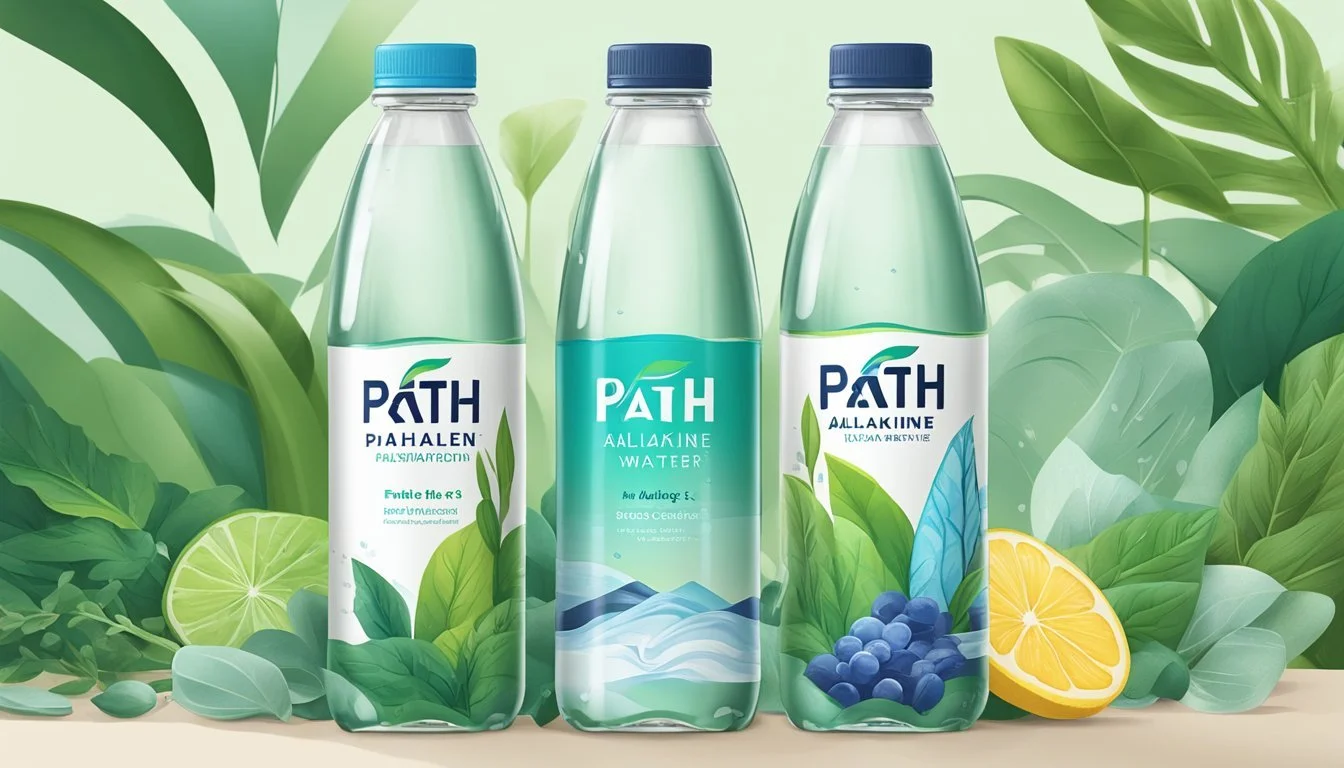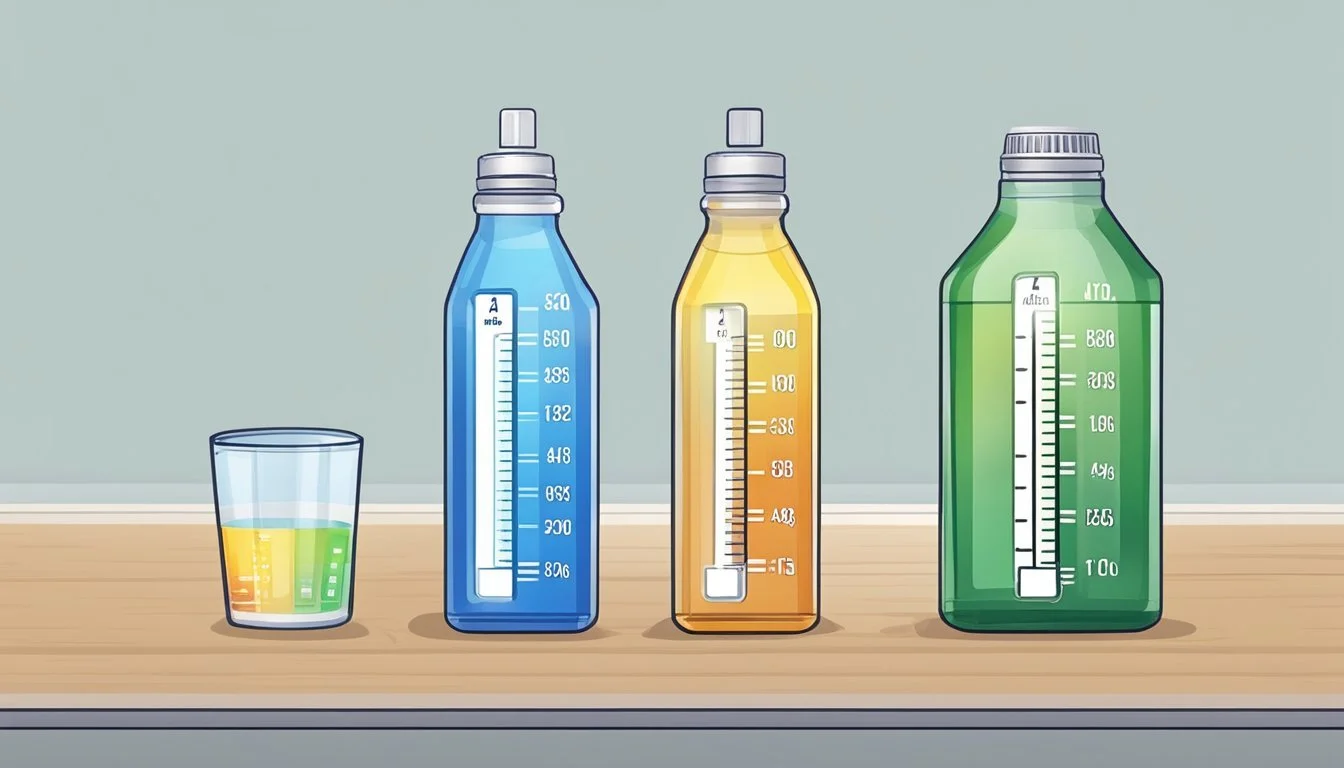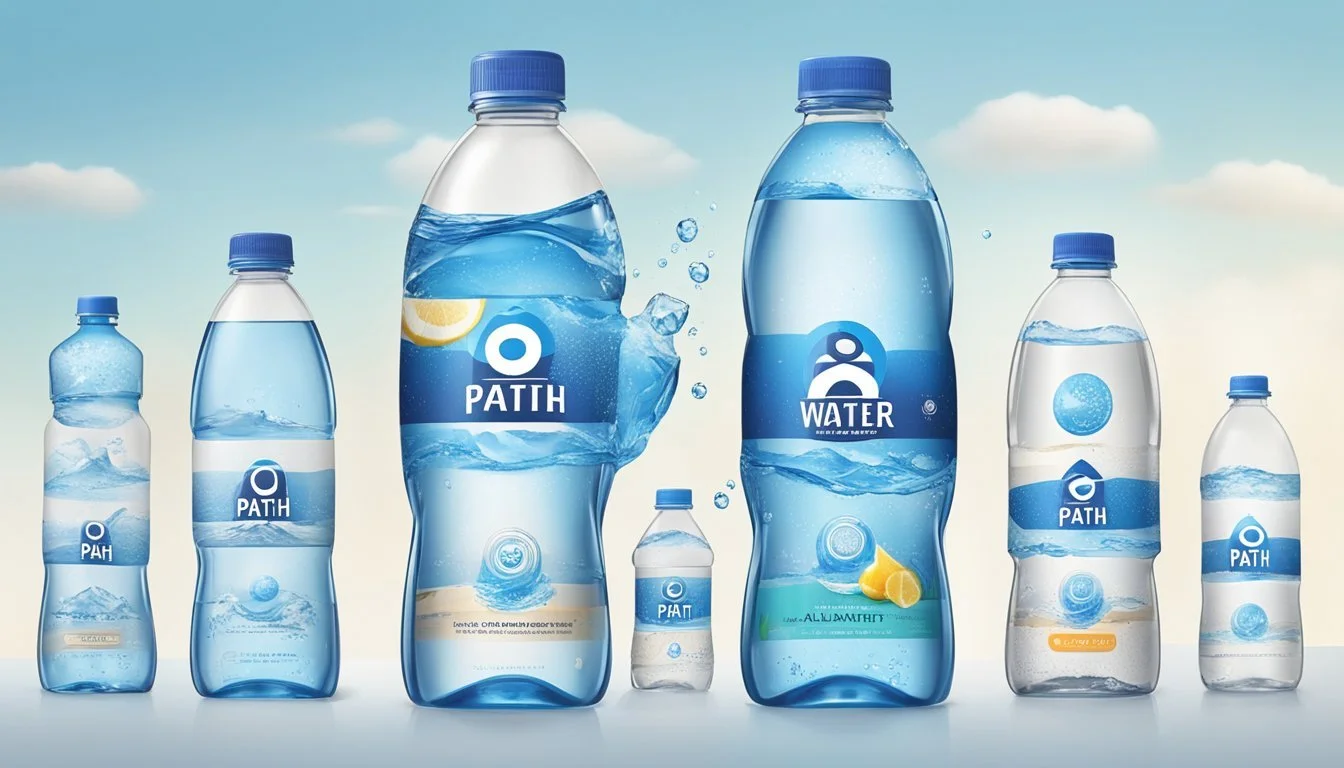Path vs. Alkaline88
Evaluating the Best Bottled Water Option
When it comes to selecting the best bottled water, Path and Alkaline88 are two brands at the forefront of many discussions. Path offers a purified option that falls into the A-tier of bottled waters, appreciated for its reliable taste and eco-friendly packaging. Alkaline88, on the other hand, is praised for its added electrolytes and higher pH levels, promising enhanced hydration.
For those seeking a sustainable and refreshing choice, Path stands out with its quality and environmental focus. Conversely, Alkaline88 appeals to those in need of extra electrolytes and a higher pH balance, catering especially to fitness enthusiasts.
Each water has its unique advantages, making it essential to weigh what factors matter most—whether it's the purity and packaging of Path or the enhanced hydration properties of Alkaline88.
The Basics of Bottled Water
Bottled water is a popular choice for many when it comes to staying hydrated. Unlike tap water, it is packaged and often marketed based on its purity and mineral contents.
Types
There are several types of bottled water:
Spring Water: Sourced from natural springs, often containing minerals.
Purified Water: Undergoes processes like reverse osmosis to remove impurities.
Mineral Water: Contains natural minerals, which may have health benefits.
Alkaline Water: Has a higher pH level, typically between 8 and 10.
Safety
Both the U.S. Food and Drug Administration (FDA) and the Environmental Protection Agency (EPA) regulate bottled and tap water to ensure safety. The FDA sets standards for bottled water manufacturing and shipment, ensuring it is safe to drink.
pH Levels
The pH level of water indicates its acidity or alkalinity. Pure water has a neutral pH of 7. Alkaline water typically has a pH between 8 and 10, suggesting it is less acidic and may have different health effects.
Type pH Range Key Characteristics Pure Water 7 Neutral pH Mineral Water Varies Contains natural minerals Alkaline Water 8-10 Higher pH, less acidic
Minerals
Mineral content can vary greatly among different bottled waters. Minerals like calcium, magnesium, and potassium are common and can contribute to the flavor and health benefits of the water.
For those who prioritize regulated safety standards, bottled water is a reliable option. It can come with added benefits, such as additional minerals or a higher pH level, catering to various preferences and needs in hydration.
Understanding PH in Bottled Water
The pH level of bottled water plays a crucial role in its taste and potential health benefits. Examining pH can help consumers make an informed choice about which water to buy.
PH Levels and Health Implications
The pH level measures the acidity or alkalinity of a substance, with a range from 0 to 14. A neutral pH is 7, acidic substances have a pH below 7, and alkaline substances have a pH above 7.
The pH of drinking water is essential for health. Alkaline water can help neutralize acid in the body and has been marketed for its potential health benefits, such as improved hydration and acid reflux relief.
On the other hand, acidic water might lead to enamel erosion and irritation of the stomach lining. Balanced pH water (pH 6.5-8.5) is considered optimal for consumption, striking a balance between potential health benefits and risks.
Comparing the PH of Path and Alkaline88
Path and Alkaline88 have different pH levels, influencing their taste and potential health benefits. Path water has a neutral or slightly alkaline pH, while Alkaline88 boasts a pH of 8.8, sitting firmly in the alkaline range.
Path Water: Known for its commitment to sustainability, Path water aims for a pH that keeps it refreshing without being too basic or acidic. This can be ideal for everyday hydration.
Alkaline88: Specifically formulated to have a high pH, Alkaline88 is marketed for its alkaline properties, purported to offer various health benefits. Its pH level of 8.8 positions it as a choice for those seeking potential alkaline water benefits.
Understanding these details helps in choosing water that aligns with individual health preferences and needs.
Composition and Purity of Water
Understanding the composition and purity of bottled water can help in making an informed decision between Path and Alkaline88. The key factors include the essential minerals in the water, the methods used to filter and purify it, and the differences between reverse osmosis and naturally sourced water.
Essential Minerals and Their Role
Both Path and Alkaline88 waters contain minerals that are crucial for the body. Minerals like calcium, magnesium, and potassium play important roles in bodily functions. Calcium aids in bone health, while magnesium supports muscle function and energy production.
Alkaline88 is known for its inclusion of natural minerals, providing a balanced intake of electrolytes. Path water, aimed at sustainability, also ensures the presence of essential minerals, though it may focus more on purified sources. These minerals not only improve taste but also contribute to overall health.
Filtration and Purification Processes
Path water and Alkaline88 use advanced filtration and purification methods to ensure purity. Path emphasizes sustainable practices by sourcing water that undergoes micro-filtration, reverse osmosis, and ultraviolet exposure, achieving 99.9% purity.
Alkaline88 also uses reverse osmosis but includes additional ionization to enhance alkalinity. Both brands use UV exposure to eliminate bacteria and filtration techniques to remove contaminants. The goal is to produce clean, safe, and refreshing drinking water while retaining essential minerals.
Reverse Osmosis vs. Natural Sources
Reverse osmosis and natural sources offer different benefits. Reverse osmosis effectively removes impurities and contaminants, making water extremely pure. Path water uses this method extensively, ensuring high levels of purity and safety.
On the other hand, Alkaline88 sometimes sources water from natural springs, adding natural minerals to the water. This method preserves the water's natural state, including important minerals. Natural source water often tastes smoother and retains a higher pH balance.
Both reverse osmosis and natural sources have merits. The choice between Path and Alkaline88 depends on personal preference for purity, mineral content, and sourcing methods.
Alkaline Water Benefits and Myths
Alkaline water is often marketed for its potential health benefits, such as improved hydration and balanced acid levels in the body. This section scrutinizes what makes water alkaline, the common health claims, and the scientific evidence and controversies surrounding these claims.
What Makes Water Alkaline
Water is considered alkaline if it has a higher pH level than regular tap water, typically above 7. Electrolytes like calcium, magnesium, and potassium are often added to achieve this alkaline state. Some bottled alkaline waters naturally have these minerals, while others undergo a process called ionization.
Natural Sources: Mineral springs often provide naturally alkaline water.
Processed: Some brands use electrolysis to increase pH levels artificially.
Different methods aim to produce water with a pH level between 8 and 9. Though neutral pH is 7, proponents argue alkaline water offers unique advantages by balancing acidity in the body.
Health Claims of Alkaline Water
Many believe that alkaline water offers several health benefits, including better hydration, improved bone health, and enhanced muscle function. Marketers also claim it can help neutralize acid in the bloodstream and boost overall immune function.
Hydration: Proponents argue it hydrates better than regular water.
Bone Health: It is said to improve calcium absorption, bolstering bone density.
Muscle Function: Electrolytes may aid muscle performance and recovery.
Despite the popularity of these claims, it's critical to examine them under scientific scrutiny to understand their validity. Much of the perceived benefits come from anecdotal evidence rather than robust clinical studies.
Scientific Evidence and Controversies
Scientific research on alkaline water is mixed and often contested. While some studies suggest marginal benefits, most healthcare experts maintain that plain water is sufficient for hydration and overall health.
Hydration Claims: Limited evidence supports that it hydrates better than regular water.
Bone Health: Few studies show a significant impact on bone metabolism.
Electrolytes: Extra electrolytes may benefit muscle function, but typical diets already meet these needs.
The body's pH balance is tightly regulated and unaffected by the pH of the water consumed. Critics argue that the supposed benefits are overblown and lack substantial scientific backing. Therefore, while the concept of alkaline water remains appealing, especially for its marketed benefits, the actual health impacts are yet to be conclusively proven.
Comparative Analysis of Path and Alkaline88
This section explores key factors such as taste, packaging, environmental impact, and price to help you decide whether Path or Alkaline88 is the better bottled water option.
Taste Profile and Sensory Experience
Path water boasts a crisp and clean taste due to its ultra-purified water formula. Users often describe the flavor as refreshing without any aftertaste. Alkaline88, with a pH of 8.8, includes Pink Himalayan salt, adding a unique mineral flavor that some find appealing and others might find slightly unusual.
Taste preferences can be highly subjective. For fitness enthusiasts or those wary of additives, the distinct taste of Alkaline88 could be a deciding factor.
Packaging and Environmental Impact
Path stands out with its commitment to sustainability, offering water in aluminum bottles that are not only BPA-free but also 100% recyclable. This infinitely recyclable material is favored for its minimal environmental footprint compared to plastic.
Alkaline88 traditionally uses plastic bottles, which, while recyclable, contribute more to plastic waste. However, the brand has made strides in offering larger, family-sized options to reduce packaging waste. The environmental impact of Alkaline88 is thus noteworthy but falls short compared to Path's aluminum solution.
Price Point and Consumer Accessibility
Path water typically comes in various pack sizes, with prices starting around $25.99 for an 18-pack of 20 fl oz bottles. This places it in a moderate price range, making it relatively accessible for most consumers who prioritize sustainability.
Alkaline88, on the other hand, tends to be more expensive, especially for its specialized products like the Alkaline88 Sport line, which costs about $39.99 per 12-pack. Per bottle, Alkaline88 can be considered less wallet-friendly, especially when compared to other hydration solutions in the market.
When considering budget, Path water offers a more economical choice without sacrificing quality, while Alkaline88's price might be justified by its unique mineral content and specific health benefits.
Certifications and Brand Trustworthiness
When selecting a bottled water brand, examining certifications and brand trustworthiness is crucial. This involves looking at the quality assurance measures and third-party endorsements that demonstrate a commitment to high standards.
Quality Assurance and Safety Standards
Both Path and Alkaline88 prioritize water quality and safety, ensuring their products meet rigorous standards. Path has a reputation for its BPA-free bottles, indicating a commitment to avoiding harmful chemicals. The company sources its water responsibly, adhering to strict Safe Drinking Water guidelines.
Alkaline88, on the other hand, emphasizes its alkalinity and purity, regularly testing for contaminants. The FDA regulates bottled water, ensuring that both brands comply with safety standards. Alkaline88 also adheres to FDA guidelines for manufacturing and shipping, maintaining transparency and consumer trust.
Third-Party Certifications and Endorsements
Path boasts several third-party certifications, enhancing its reputation for sustainability and reliability. Recognized by entities like NSF International, Path's products undergo stringent testing for safety and quality. These endorsements affirm the brand's commitment to delivering safe and environmentally friendly bottled water.
Alkaline88 is not far behind, with endorsements for its alkaline properties and manufacturing practices. The brand’s water is certified by leading industry bodies, bolstering its credibility. Additionally, consumer reviews consistently highlight the brand’s focus on purity and safety, reinforcing its standing in the market. These third-party validations play a crucial role in building trust and ensuring product excellence.
Consumer Considerations
When comparing Path and Alkaline88, it's important to consider factors such as hydration needs, health conditions, and accessibility options. These details can help consumers make a well-informed decision.
Hydration for Physical Activity and Daily Intake
Maintaining hydration is crucial for both daily activities and physical exercise. Path water is known for its purity and absence of artificial additives, making it suitable for daily hydration. Alkaline88, with a pH of 9.5, is marketed as enhancing hydration, especially during intense workouts due to its electrolyte content. For athletes or individuals engaging in regular physical activity, this electrolyte boost can be beneficial for maintaining homeostasis and physical performance.
Selecting Based on Health Conditions
Health conditions can influence the choice between Path and Alkaline88. Individuals with kidney disease should consider the mineral content in their water. Alkaline88, with its added minerals, may not be suitable for those on a restricted diet due to kidney issues. Path water, being pure and devoid of added minerals, might be a safer option. Both waters meet regulatory standards, but consulting a healthcare provider can provide personalized guidance.
Accessibility and Retail Options
Accessibility is a key factor in the choice of bottled water. Path water can be found in various sizes, suitable for both home use and on-the-go hydration. It is available online and in grocery stores. Alkaline88 is also widely accessible, found in multiple retailer chains and online platforms. Consumers may choose based on convenience and the specific pack sizes available, ranging from single bottles to larger bulk packs.
More About Path
Mountain Valley Spring Water vs Path: Which Bottled Water is Better?
Path vs Whole Foods Italian Still Mineral water: Which Bottled Water is Better?
More About Alkaline88
Alkaline88 vs Crystal Geyser: Which Bottled Water is Better?
Alkaline88 vs Kirkland Signature: Which Bottled Water is Better?
Alkaline88 vs Richard's Rainwater: Which Bottled Water is Better?
Alkaline88 vs Talking Rain AQA: Which Bottled Water is Better?
Alkaline88 vs Whole Foods 365: Which Bottled Water is Better?
Aqua Carpatica vs Alkaline88: Which Bottled Water is Better?
Cascade Mountain vs Alkaline88: Which Bottled Water is Better?
Core Hydration vs Alkaline88: Which Bottled Water is Better?
Hawaii Volcanic vs Alkaline88: Which Bottled Water is Better?
Hawaiian Springs vs Alkaline88: Which Bottled Water is Better?
Icelandic Glacial vs Alkaline88: Which Bottled Water is Better?
Mountain Valley Spring Water vs Alkaline88: Which Bottled Water is Better?
Nestle Pure Life vs Alkaline88: Which Bottled Water is Better?
San Pellegrino vs Alkaline88: Which Bottled Water is Better?
Solan de Cabras vs Alkaline88: Which Bottled Water is Better?
Whole Foods Italian Still Mineral water vs Alkaline88: Which Bottled Water is Better?





